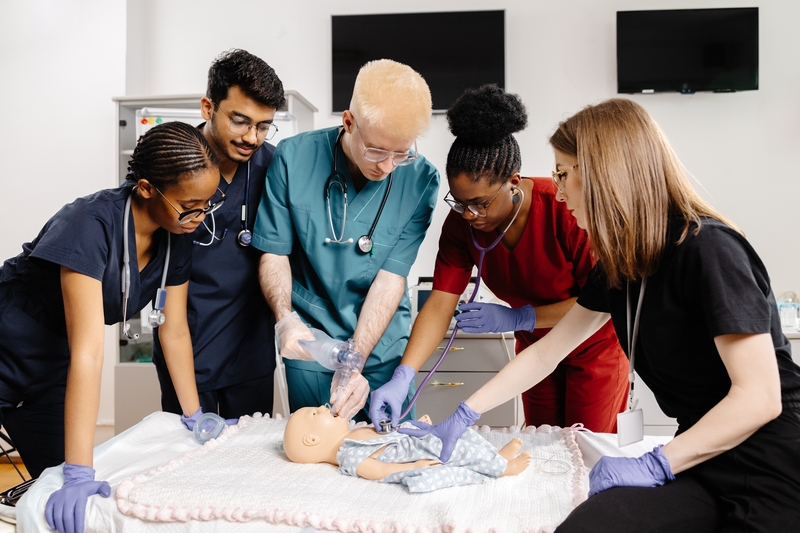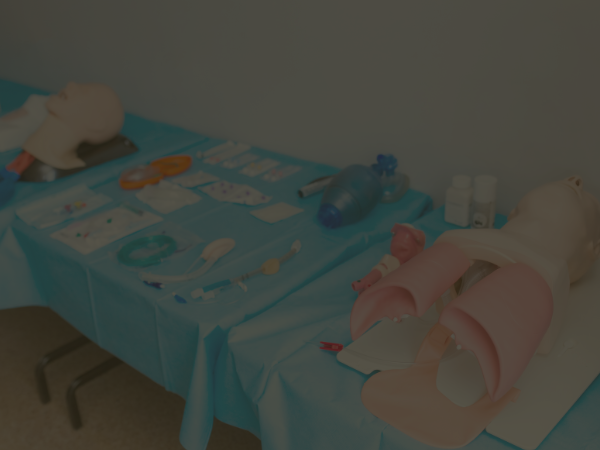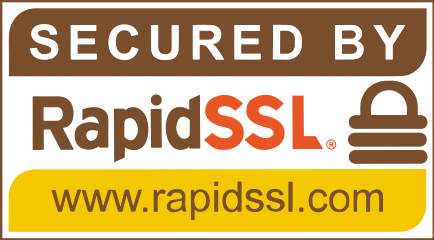For healt hcare professionals, fast decision-making and knowledge of first aid can save lives. Pediatric Advanced Life Support (PALS) and Advanced Cardiovascular Life Support (ACLS) are two essential certifications that prepare providers to respond to life-threatening emergencies.
While both focus on evidence-based emergency care, they serve different patient age groups:
- PALS is for health care professionals treating critically ill or injured infants and children.
- ACLS is for health care providers managing cardiovascular emergencies in adults.
Both certifications build on Basic Life Support (BLS) and are required in many emergency and critical care settings. With Save a Life’s 100% online courses, you can train at your own pace while staying compliant with the latest resuscitation guidelines.
What is PALS (Pediatric Advanced Life Support)
 Pediatric Advanced Life Support (PALS) is a specialized certification for health care professionals who care for critically ill or injured infants and children. It provides structured protocols for recognizing and managing life-threatening pediatric emergencies, including respiratory distress, shock, and cardiac arrest.
Pediatric Advanced Life Support (PALS) is a specialized certification for health care professionals who care for critically ill or injured infants and children. It provides structured protocols for recognizing and managing life-threatening pediatric emergencies, including respiratory distress, shock, and cardiac arrest.
Who Needs PALS Certification?
PALS certification is essential for medical professionals who work with pediatric patients in emergency care, critical care, and other high-risk health care environments. This includes:
- Pediatricians and emergency physicians
- Nurses in pediatric and neonatal intensive care units (PICU/NICU)
- Paramedics and emergency medical technicians (EMTs)
- Respiratory therapists
- Advanced practice providers, such as physician assistants and nurse practitioners
- Any health care provider who participates in pediatric resuscitation efforts
What Does PALS Training Cover?
PALS training focuses on early recognition, intervention, and team-based resuscitation strategies. Key topics include:
- Pediatric assessment, such as identifying early signs of deterioration
- High-quality cardiopulmonary resuscitation (CPR) for infants and children, including delivering effective chest compressions and ventilations
- Airway and breathing management using oxygenation and ventilation support to maintain vital organ perfusion.
- Shock and cardiac arrest algorithms, including step-by-step emergency response protocols
- Pediatric emergency medications, including Proper dosages and administration
- Effective team dynamics during resuscitation
PALS Certification Requirements
To earn a PALS certification, participants must demonstrate proficiency in Basic Life Support (BLS), complete all required coursework and assessments, and pass a written exam and skills evaluation.
How Long Does PALS Certification Take?
With Save a Life’s 100% online certification, PALS training can be completed in as little as 7–8 hours. Learners can study at their own pace, take the final exam, and receive instant digital certification upon passing.
What is ACLS (Advanced Cardiovascular Life Support)
Advanced Cardiovascular Life Support (ACLS) is a critical certification for health care professionals who manage adult patients experiencing life-threatening cardiac emergencies. ACLS provides advanced protocols for recognizing and treating conditions such as cardiac arrest, stroke, and acute coronary syndromes (ACS) to improve patient outcomes.
Who Needs ACLS Certification?
ACLS certification is essential for health care providers who are involved in the management of cardiac emergencies, particularly in acute and critical care settings. This includes:
- Emergency room and intensive care unit (ICU) physicians and nurses
- Anesthesiologists and nurse anesthetists
- Emergency medical technicians (EMTs) and paramedics
- Cardiologists and other specialists who treat cardiovascular conditions
- Advanced practice providers, including physician assistants and nurse practitioners
- Respiratory therapists and other hospital-based emergency responders
What Does ACLS Training Cover?
ACLS training builds on Basic Life Support (BLS) and focuses on early recognition and intervention in cardiovascular crises. Key topics include:
- Recognition of cardiac arrest and pre-arrest conditions (e.g., symptomatic bradycardia or tachycardia)
- High-quality cardiopulmonary resuscitation and integration of ACLS protocols, including delivering chest compressions
- Airway management and ventilation techniques
- Cardiac arrest algorithms for life-threatening arrhythmias (VF, pulseless VT, asystole, PEA)
- Pharmacology for emergency interventions (epinephrine, amiodarone, atropine, etc.)
- Defibrillation and electrical therapy (synchronized cardioversion, pacing)
- Post-cardiac arrest care (stabilization and recovery strategies)
ACLS Certification Requirements
To earn an ACLS certification, participants must demonstrate proficiency in Basic Life Support (BLS), complete all course modules and training materials, pass a written exam and skills assessments.
How Long Does ACLS Certification Take?
With Save a Life’s 100% online certification, ACLS can be completed in as little as 8 hours. Learners can study at their own pace, take the final exam, and receive instant digital certification upon passing.
PALS vs. ACLS: Which One Should You Take?
 The choice between PALS and ACLS depends on your role and the patient population you serve. If you work with critically ill or injured children, PALS is essential. If you manage adult cardiac emergencies, ACLS is required. Many health care professionals, especially those in emergency medicine, critical care, and pre-hospital settings, benefit from holding both certifications, as it increases job flexibility and career opportunities. ACLS is generally more in demand, as cardiac emergencies are more common in adults, but PALS is equally important for those in pediatric-focused roles.
The choice between PALS and ACLS depends on your role and the patient population you serve. If you work with critically ill or injured children, PALS is essential. If you manage adult cardiac emergencies, ACLS is required. Many health care professionals, especially those in emergency medicine, critical care, and pre-hospital settings, benefit from holding both certifications, as it increases job flexibility and career opportunities. ACLS is generally more in demand, as cardiac emergencies are more common in adults, but PALS is equally important for those in pediatric-focused roles.
PALS vs. ACLS Course Cost and Timing
How Much Does PALS Certification Course Cost?
With Save a Life, PALS certification costs $159. You can also bundle PALS and ACLS for $289 or PALS, ACLS, and BLS for $318.
How Much Does ACLS Certification Course Cost?
ACLS certification is $159 through Save a Life.
Online vs. In-Person ACLS and PALS Training
The choice between online and in-person training depends on your schedule, learning Save a Life offers 100% online certification, allowing you to study at your own pace without scheduling in-person skills tests. The course follows the latest ILCOR guidelines and provides exclusive study materials, videos, and eBooks.
How Often Do You Need to Renew PALS or ACLS?
Both PALS and ACLS certifications last two years. With Save a Life’s “For Life” Certification, you pay once and renew forever at no additional cost. Once you pass your initial exam, you’ll instantly receive your digital card. As you approach your two-year mark, we’ll remind you via email, and you can log back in, complete the updated exam, and get your updated digital card.
BLS Certification
The Basic Life Support (BLS) certification is the foundation for emergency care training and is required before you can complete either ACLS or PALS. It equips health care professionals with essential skills in CPR, the use of automated external defibrillators (AEDs), and basic airway management, all of which are vital tools for responding to cardiac emergencies and performing effective first aid.
You can take the BLC certification entirely online with Save a Life by NHCPS. Our certification is nationally accepted by over 98% of employers and fully compliant with the latest ILCOR and JCAHO standards. You can complete your certification or renewal course in as little as four hours, all on your own schedule.
The course costs $109, or you can get it for free when bundled with ACLS and PALS.
Investing in Lifesaving Skills
Both PALS and ACLS certifications are essential for health care professionals working in emergency and critical care. While ACLS is widely required for managing adult cardiac emergencies, PALS is crucial for those treating critically ill infants and children. Many professionals benefit from earning both certifications, enhancing their skills and career opportunities.
By staying certified and up to date, you ensure readiness for life-saving interventions when every second counts. Whether you pursue PALS, ACLS, or both, these certifications provide the expertise needed to deliver effective, evidence-based emergency care and first aid when it matters most.







Leave a Reply